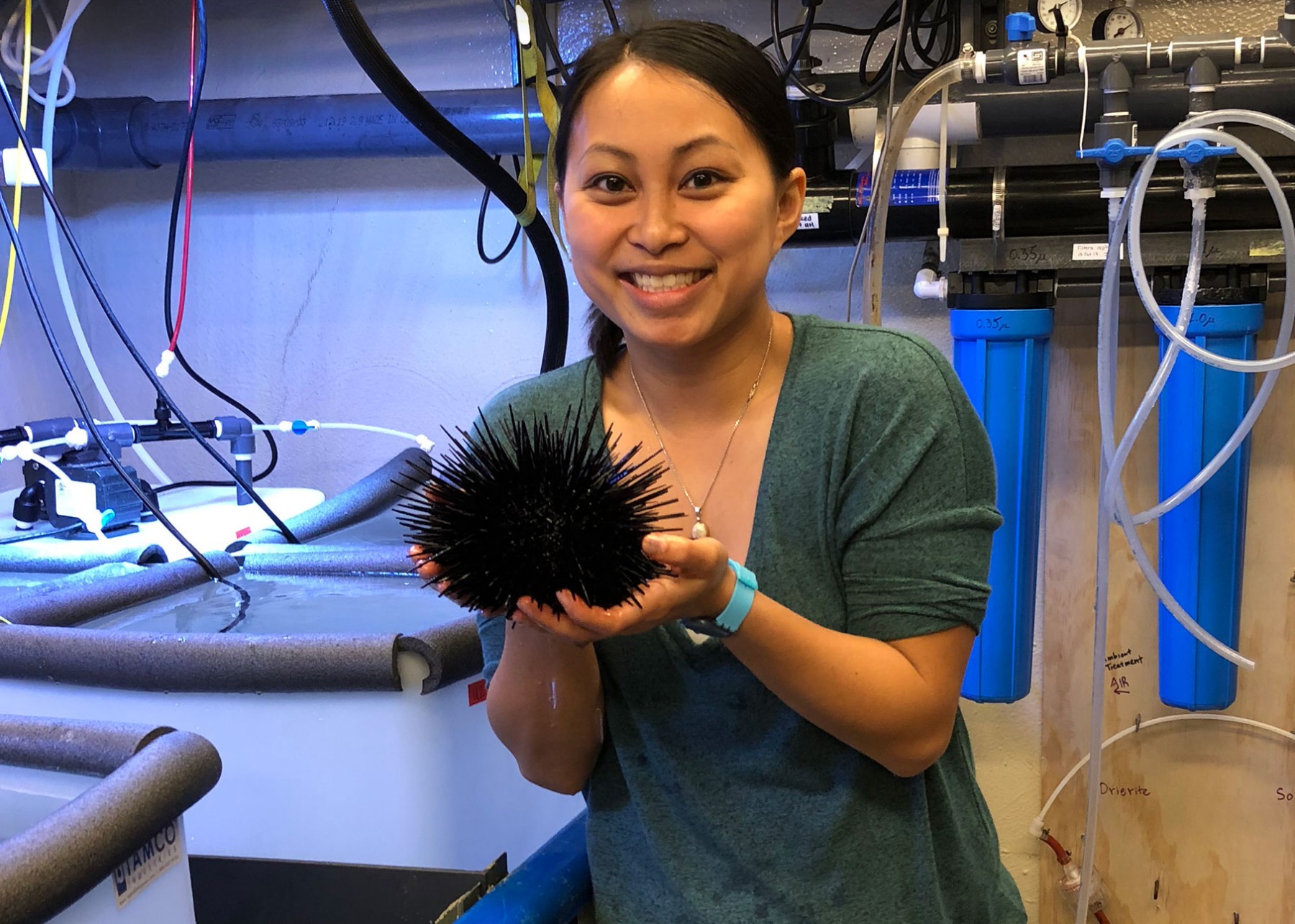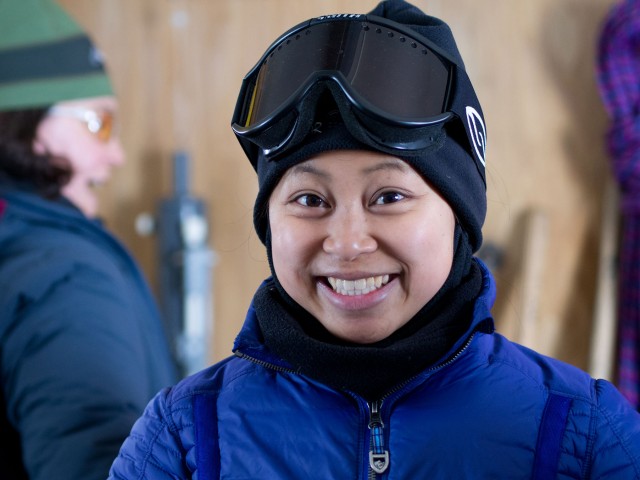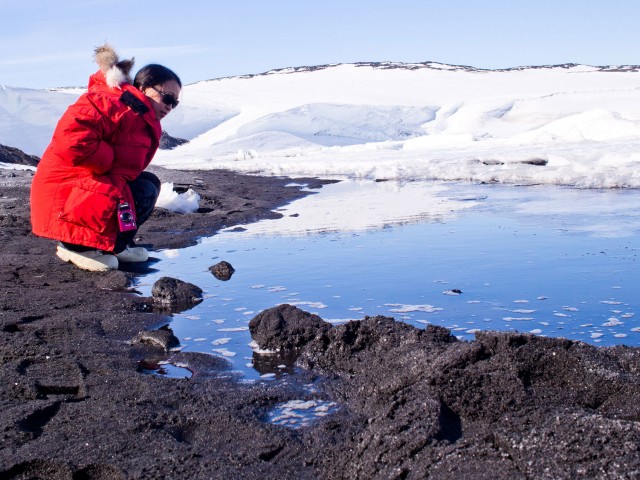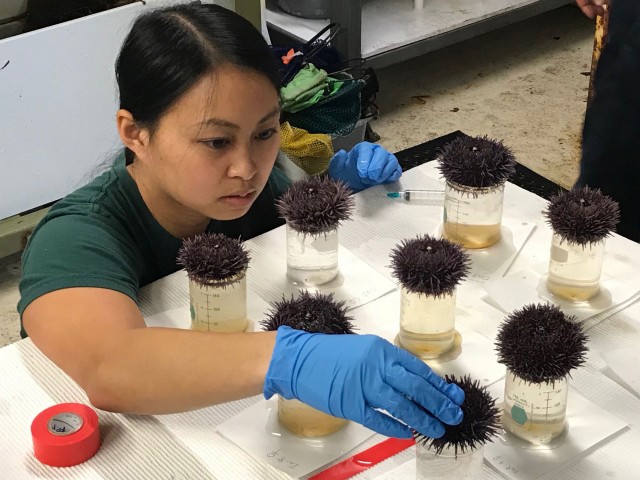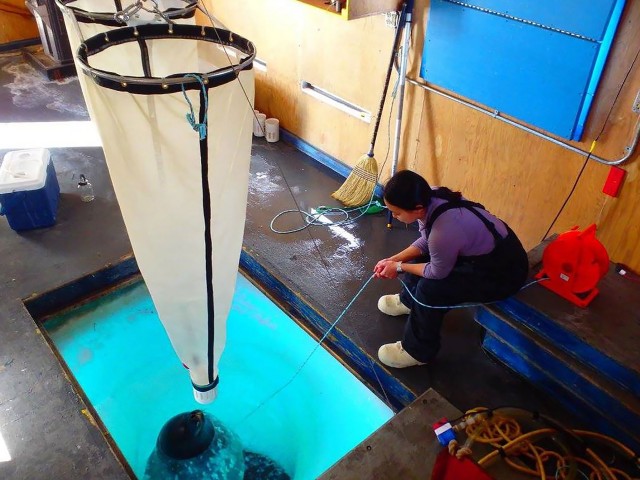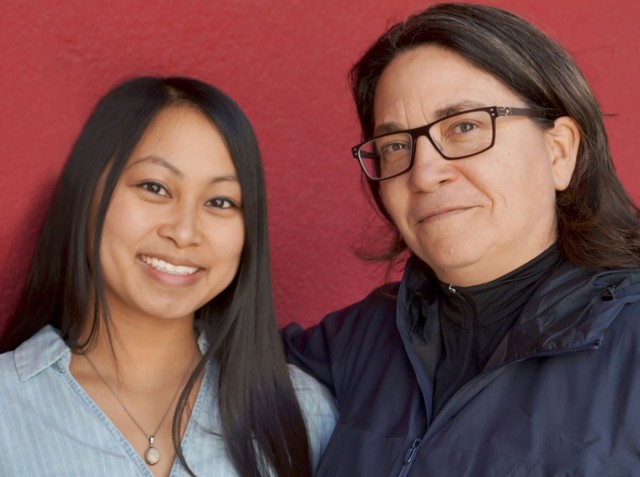
About Juliet
Juliet Wong is a fourth year PhD student in the Ecology, Evolution, and Marine Biology Department in Gretchen Hofmann’s lab. She completed her B.S. in Marine and Atmospheric Science at the University of Miami.
Why UCSB EEMB
For those studying marine science, the proximity of UCSB to the ocean is unbeatable. I love the location and feel of UCSB it provides such a beautiful and relaxing atmosphere. Santa Barbara is a gorgeous city, and I love being so close to great hikes and beaches. UCSB’s EEMB department is also really great. My favorite part of it is the people—some of my best friends are fellow EEMB graduate students. I have had countless positive interactions with faculty and staff in EEMB. All the people in EEMB are very friendly, engaging, and supportive.
Research
How and Why did you get into your Area of Research?
Growing up on the California coast as the daughter of an avid fisherman, I have always been interested in the ocean, fisheries, and sustainability. From a young age, I spent time on fishing boats with my father, and became concerned by potential threats to important marine fisheries. During my time at the University of Miami, the impact of climate change was emphasized in my coursework, which sparked my passion in global change biology. I pursued my passion by doing research at Florida International University and at a National Oceanic and Atmospheric Administration (NOAA) ocean acidification research laboratory.
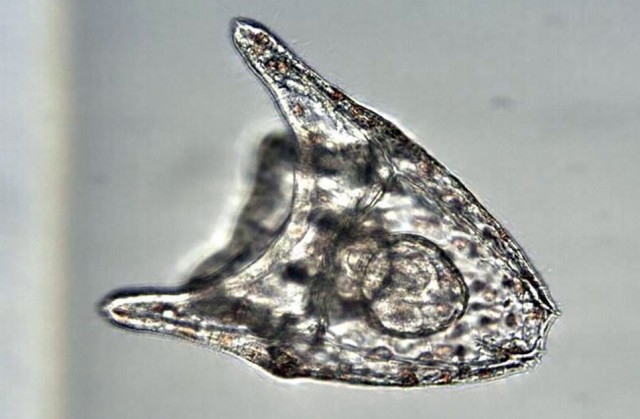
What is Your Research Focus?
My research focuses on the impacts of ocean acidification and ocean warming on the early developmental stages of marine invertebrates. I am particularly interested in studying fisheries species like the red sea urchin, Mesocentrotus franciscanus, an ecologically and economically valuable species often harvested for the sushi industry. Using a combination of physiological and molecular approaches, I investigate how organisms respond to current ocean conditions and try to predict how they will respond to future environmental conditions. I research processes organisms may be able to use to cope and to keep up with rapid environmental changes. I am currently investigating transgenerational plasticity, which is when the environmental conditions experienced by the parental generation influence how their offspring respond to stress.
What Do You Find Rewarding About Your Research?
I feel that my research touches on global issues, and I am happy about any contributions I can make to the field of global change biology. My dream job is to be teaching and conducting research as a university professor. I consider myself to be very fortunate to study what fascinates me, and though it can be challenging at times, I have a lot of fun and enjoy doing my research.
